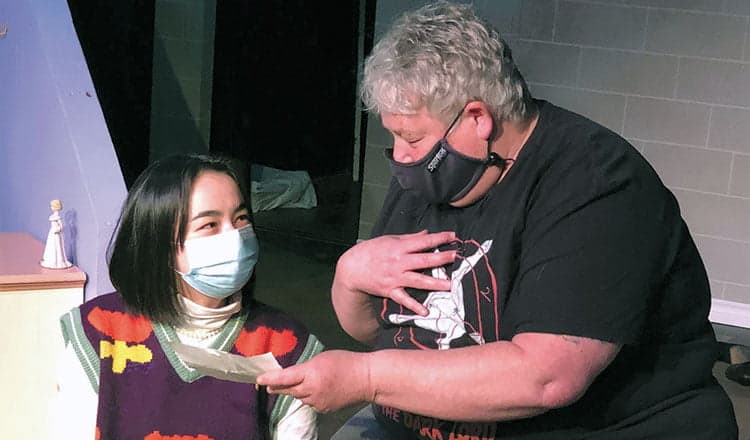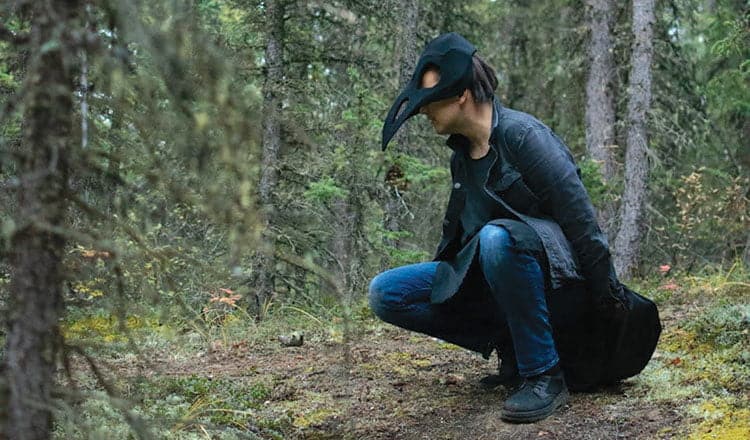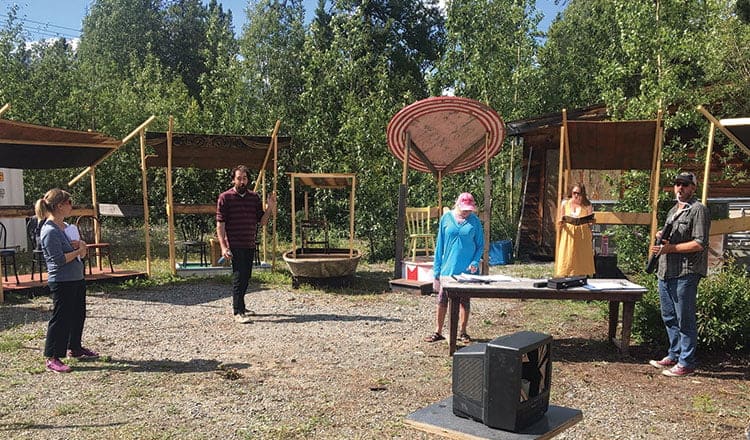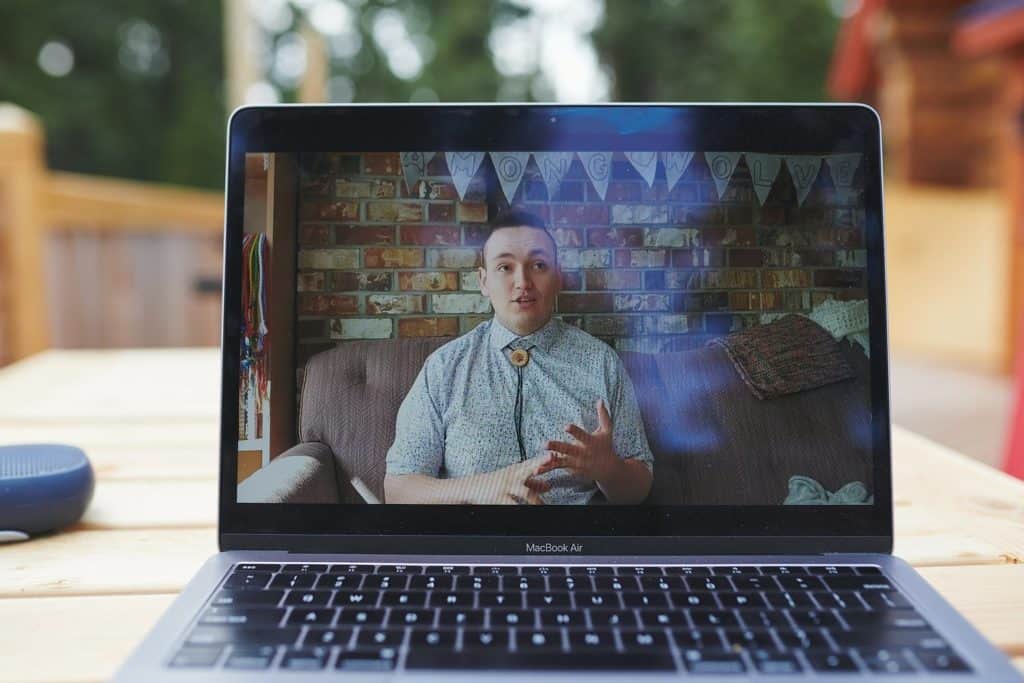When Patti Flather left Vancouver for the Yukon, she had no thoughts of becoming a playwright, let alone co-founder and artistic director of a busy theatre company.
“It was not at all part of life,” she says. “My parents were not theatre goers. I had one wonderful teacher in elementary school who did drama with us. We made up plays all the time, and I absolutely loved it. But that was just one year.”
Things started to change after she earned a political science degree and found herself at a decision point.
“I wanted to get out of Vancouver, where I’d grown up, and just go out on my own a bit,” she says. “I was thinking about different places to move, and my resume, which had sat in a pile at the Whitehorse Star for many, many months, came to the top of the pile.”
The move to Whitehorse reconnected Flather with Nancy Campbell, a friend from her days on the University of British Columbia student newspaper, The Ubyssey, which had “a proud tradition of being agents of social change and raising awareness of lots of issues.”
In Whitehorse, she soon met a CBC reporter named Leonard Linklater, who would later become her husband. He and Campbell both played pivotal roles in her development as a theatre artist.
“Nancy was fully involved with the Guild Theatre, so right away I started going to plays through the Guild,” Flather recalls.
“Then I thought it would be really, really fun to get involved in theatre and meet people. So I auditioned for Romeo and Juliet with the Whitehorse Drama Club, and played Lady Capulet in that.”
When she and Linklater entered Nakai Theatre’s 24-hour playwriting competition a year later, they were expecting the first of their two daughters.
They emerged from the writing marathon with the first take of a play called Sixty Below, about a young Gwich’in man, fresh out of jail, who struggles to turn his life around.
Following extensive workshopping and re-writes, the play premiered at the Yukon Arts Centre in 1993. Further development work led to a 1997 production by Toronto’s Native Earth Performing Arts, which was nominated for several Dora awards, including best play.
After writing Sixty Below, Flather returned to UBC to get a Masters degree in creative writing, while Linklater was studying at the Institute of Indigenous Government in Vancouver.
In 1999, realizing they shared “a real passion to continue to develop and share Northern stories, including a strong indigenous aboriginal focus,” they founded their own company, Gwaandak Theatre Adventures.
“The vision always was that it was a meeting place that included people of different backgrounds, but that it had a really strong First People’s focus. It wasn’t that there was no one doing that, but we didn’t feel there was anyone doing it with that specific a mandate and focus.”
Gwaandak teamed up with Nakai Theatre to produce a millennium-year remount of Sixty Below, complete with a new script.
“Gwaandak is a Gwich’in word that can have different meanings, such as storyteller, or telling a story, or news,” Flather explains.
“We felt that it really fit, because we really honour the storytelling traditions of thousands of years here in the North, as well as all different cultures. And Leonard is a member of the Vuntut Gwitchin First Nation, so it just felt like the right name.”
Since then, Gwaandak has produced numerous plays, including three penned by Flather – West Edmonton Mall, Where the River Meets the Sea, and The Soul Menders.
Gwaandak has grown considerably from a home-based duo working on a project-by-project basis. It has a downtown office, a board of directors, a managing artistic director (Flather) and a general manager (Marjolène Gauthier), plus short-term help as needed.
The company took a major leap forward when it decided to commission two original plays by aboriginal playwrights: Café Daughter, by Kenneth T. Williams (produced in 2011 and 2013) and Justice, by Leonard Linklater (2012).
For the past five years, it has also hosted a summer series of aboriginal play readings.
“It feels to me like we’re achieving what I’d always hoped for, which was not just building a team for a project and then losing everyone because there’s nothing going on after that,” Flather says.
“Now it’s about having a community and keeping those connections with those wonderful people that you’ve worked with on a project, and having a connection with an audience.”
Flather hopes to strengthen those connections by taking Gwaandak’s storytelling to more Yukon communities, if not with full productions, at least with readings and short plays by Yukon artists that can be performed “anywhere – on a riverbank, in a theatre, at a convention centre, on a street corner.”
And the company will continue building partnerships with other companies across Canada and abroad.
The big project for Gwaandak’s 15th anniversary next year, for example, will be a joint production of Flather’s latest play, Paradise, with the Ontario-based multicultural theatre group, MT Space, directed by Majdi Bou-Matar.
For Flather, the pebbles from that “one wonderful teacher in elementary school” are still creating widening ripples.




